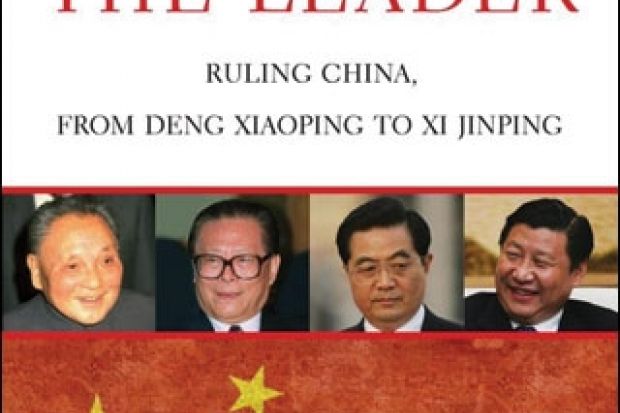David Lampton aims “to rescue the leaders [of China] from cross-national theory and generalization” and render them “more human”. The leaders’ lives are hellishly busy. “Governing China is like ‘Whack-A-Mole’ ”, a game in which the players use mallets to “pound multiple pop-up moles back into their holes”. The problem, the Johns Hopkins University academic contends, is that Beijing’s leaders do not have enough mallets. He sympathises with “the nightmares disturbing their sleep…keeping the economic juggernaut going…providing citizens breathable air and potable water, and reassuring an apprehensive world that Beijing’s growing power is not a threat”. Perhaps it is these many demands that prompt Lampton to observe, bizarrely, that “Chinese leaders are drinking from a fire hose, with all interested parties besieging them”.
On the day I finished reading this book, the academic Ilham Tohti, an Uighur nationalist, and six of his students at Beijing’s Minzu University for “minorities” (not ethnic Chinese) were arrested on charges of “breaking the law”. The US State Department, usually cautious about criticising Beijing, said it “appears to be part of a disturbing pattern of arrests and detentions of public interest lawyers, Internet activists, journalists, religious leaders and others who peacefully challenge official Chinese policies and actions”. Tohti has just been “whacked”.
Lampton recalls an occasion when former premier Wen Jiabao, who was often termed “Grandpa Wen” in the official press, disclosed that he didn’t know about the arrest of a professor at China’s top university because “he had to worry about a mass of 1.3 billion”. Perhaps the current president, Xi Jinping, who insists on tougher discipline, will not have heard of the arrest of Tohti – or the host of other dissidents listed by the US State Department.
The author bases his narrative on almost 600 interviews he has conducted over several decades, and he painstakingly discusses his interviewing techniques; the interviewer, for example, must speak Chinese even if the interviewee has better English, because this builds warm relationships. From visiting China quickly and often, he says, he has learned that its leaders “are deeply anxious about their grip on such a huge and diverse population and territory”. To maintain this grip, China’s “greatest governance and leadership challenges are figuring out how to tame mounting social pluralism and direct it constructively and cooperatively”. He doesn’t explain how Chinese leaders tame pluralism. But we know: they whack it.
Industrial protests, Lampton claims, have not “coalesced across geographic areas”. He must know that in Tiananmen Square in 1989 – which he barely mentions – and in cities across China, industrial workers were notably present and most of those killed were from that group. His analysis of Deng Xiaoping is profoundly influenced, as his notes show, by Ezra Vogel’s 2011 biography, Deng Xiaoping and the Transformation of China. Vogel’s very long book devotes only a tiny fraction of its space to Deng’s eager cooperation with Mao Zedong in mass killings in the early 1950s, showing an appetite for causing death revealed again when he ordered the army to crash into Tiananmen Square on 3‑4 June 1989. Indeed, most of the killing and suffering, from Mao’s time on, has been ordered by China’s busy leaders.
Among his hundreds of interviewees, Lampton explicitly excludes farmers (of whom, an informant tells him, “the leaders are afraid”) and other “common citizens”. Citizens such as Tibetans and Uighurs? Yet such people also have “leaders”. As for dissidents, he carefully writes, “I have interacted with a few high-profile individuals” and names just one. Perhaps he could request interaction with Nobel Peace prizewinner Liu Xiaobo, a whacked mole now serving 11 years in jail for inciting subversion of state power.
Following the Leader: Ruling China, from Deng Xiaoping to Xi Jinping
By David M. Lampton
University of California Press, 312pp, £21.95
ISBN 9780520281219
Published 3 March 2014
Register to continue
Why register?
- Registration is free and only takes a moment
- Once registered, you can read 3 articles a month
- Sign up for our newsletter
Subscribe
Or subscribe for unlimited access to:
- Unlimited access to news, views, insights & reviews
- Digital editions
- Digital access to THE’s university and college rankings analysis
Already registered or a current subscriber? Login





